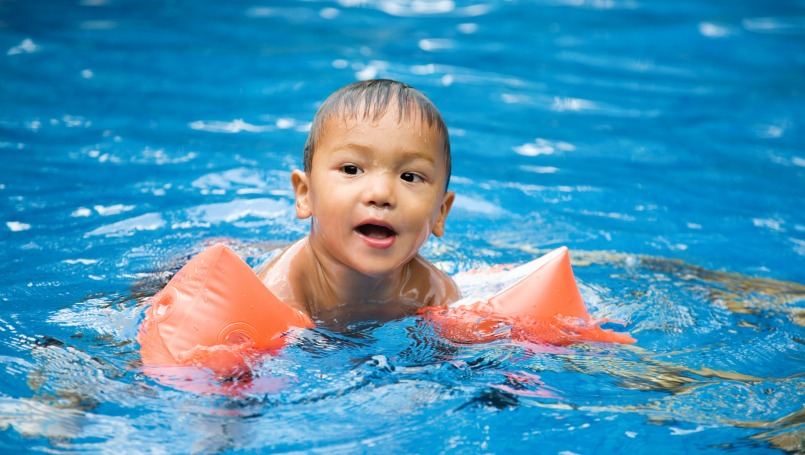
A terrifying, and potentially deadly medical issue is causing parents to panic while their kids are in the pool or other bodies of water. You’ve probably heard about the term dry drowning. This is not a medical term and is often misinterpreted. This may be better labeled as a submersion injury.
Here’s the basic idea: a child goes swimming, and everything seems fine. Then, the next day or even a few days later, the child dies. The cause? He or she ingested a large amount of water, showed no signs or symptoms, and then passed away days later.
Beaumont Children’s pediatric emergency director Whitney Minnock, MD., says, “Submersion injury doesn’t quite happen like that. Drowning occurs when there is respiratory compromise due to being submerged in water, which can cause laryngeal spasm and you will see signs of struggle, like coughing, difficulty breathing or choking. In some cases, the child can inhale water before the airway clamps shut and can cause lung damage causing worsening symptoms 6-12 hours later. If your child inhaled some water while in the bath or was playing in the pool and had no trouble, there is no need to worry. The concept that your child will suddenly die days or hours after swimming without any struggle is false.”
Look for these signs and symptoms of submersion injury in young children, infants and toddlers and seek care:
- Any increased work of breathing - nostrils fairing, retractions (space between the child's ribs or gap above their clavicle when they breathe)
- Persistent coughing
- Fatigue or sleepiness
- Vomiting
- Change of skin color
- Fever
Dr. Minnock says she’s answering more and more questions every day from parents who are afraid to let their children go swimming because they are worried about this phenomenon called “dry drowning.”
“I’ve answered many questions about this from my own family and friends,” said Dr. Minnock. “Parents and caregivers must always watch children closely whenever kids are in or near the water. If your child cannot swim, make sure they wear a life jacket. Secure the perimeter of a pool with a fence and locked gate. It is a good idea for parents and caregivers to learn basic swim rescue skills and cardiopulmonary resuscitation (CPR) in the event of an emergency.”
If a child does accidentally swallow or inhale a large amount of water, he or she will cough quite a bit and it will be obvious there is a problem. It could even appear like the child is choking on water.
“If you are concerned that your child has suffered from submersion or choked on water and are showing any signs of trouble breathing, please bring them to the emergency department where they can be monitored by a physician. As a mom of 3 young children as well, I get it and it is much better to be safe and get them checked out,” said Dr. Minnock.
